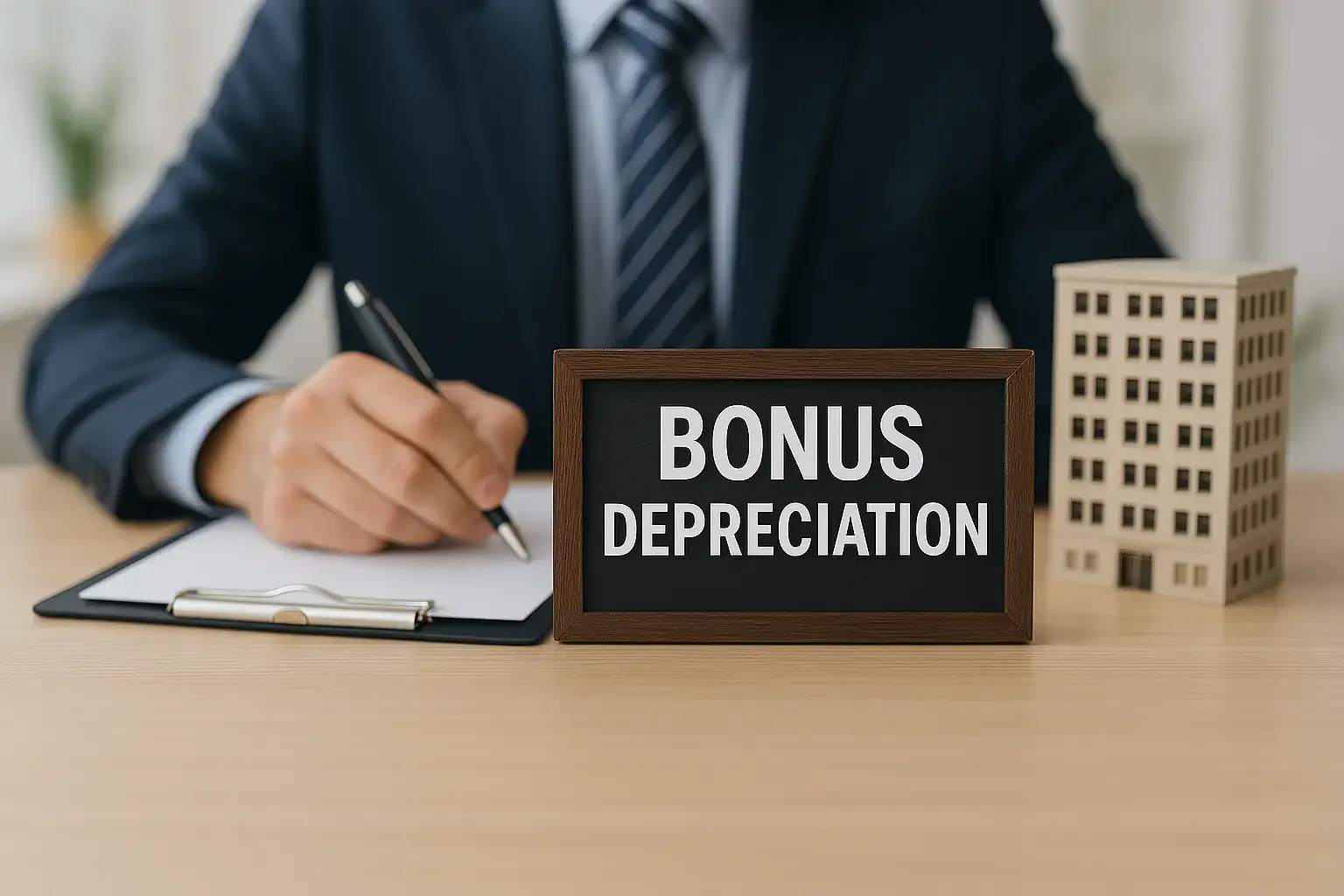
What is Bonus Depreciation?
Bonus depreciation is a tax incentive that allows businesses to immediately deduct a large percentage of the purchase price of eligible assets, such as commercial real estate improvements, rather than writing them off over the typical depreciation schedule. This accelerated depreciation provides significant tax benefits for commercial real estate investors.
Key Benefit: Immediate Tax Deductions
Bonus depreciation allows investors to deduct a substantial portion of qualified improvement costs in the first year, significantly reducing taxable income and improving cash flow.
Current Bonus Depreciation Rates
The Tax Cuts and Jobs Act (TCJA) of 2017 significantly enhanced bonus depreciation by allowing 100% first-year bonus depreciation for qualified property acquired and placed in service after September 27, 2017, and before January 1, 2023. However, the bonus depreciation percentage is being phased down:
Phase-Down Schedule
- 100% for property placed in service before January 1, 2023
- 80% for property placed in service during 2023
- 60% for property placed in service during 2024
- 40% for property placed in service during 2025
- 20% for property placed in service during 2026
- 0% for property placed in service after 2026
Qualified Property
For commercial real estate, qualified property generally includes:
- Qualified Improvement Property (QIP)
- Certain building components
- Land improvements
- Personal property within buildings
Qualified Improvement Property (QIP)
Qualified Improvement Property (QIP) is any improvement made by the taxpayer to the interior portion of a nonresidential building if the improvement is placed in service after the building was first placed in service. QIP does not include improvements related to:
- The enlargement of the building
- Elevators or escalators
- The internal structural framework of the building
The CARES Act of 2020 made a technical correction to the TCJA, classifying QIP as 15-year property, making it eligible for bonus depreciation.
Benefits for Net Lease Investors
Immediate Tax Savings
By accelerating depreciation deductions, investors can significantly reduce their taxable income in the year the property improvements are placed in service, potentially resulting in substantial tax savings.
Improved Cash Flow
The tax savings from bonus depreciation can improve cash flow, allowing investors to reinvest in additional properties or make further improvements to existing properties.
Enhanced Investment Returns
The time value of money principle means that tax deductions taken sooner are more valuable than those taken later, potentially increasing the overall return on investment.
Cost Segregation Studies
To maximize bonus depreciation benefits, many investors conduct cost segregation studies. These studies identify and reclassify property components that would typically be depreciated over 39 years (the standard for commercial buildings) into shorter depreciation periods (5, 7, or 15 years), making them eligible for bonus depreciation.
Important Considerations
- Bonus depreciation creates larger deductions in early years but smaller deductions in later years, which should be factored into long-term tax planning.
- When a property is sold, depreciation deductions (including bonus depreciation) may be subject to depreciation recapture, taxed at a maximum rate of 25%.
- State tax treatment of bonus depreciation may differ from federal treatment, potentially requiring separate calculations for state tax purposes.
- The benefits of bonus depreciation should be weighed against other tax strategies, such as 1031 exchanges.
Combining Bonus Depreciation with 1031 Exchanges
Investors can potentially combine the benefits of bonus depreciation with 1031 exchanges. When acquiring a replacement property in a 1031 exchange, any improvements made to that property may qualify for bonus depreciation, even though the property acquisition itself doesn't generate new depreciation basis.
Disclaimer
This information is provided for educational purposes only and should not be considered legal, tax, or financial advice. Tax laws and regulations are complex and subject to change. Always consult with a qualified tax professional, CPA, or attorney regarding your specific situation before making investment decisions or implementing tax strategies.